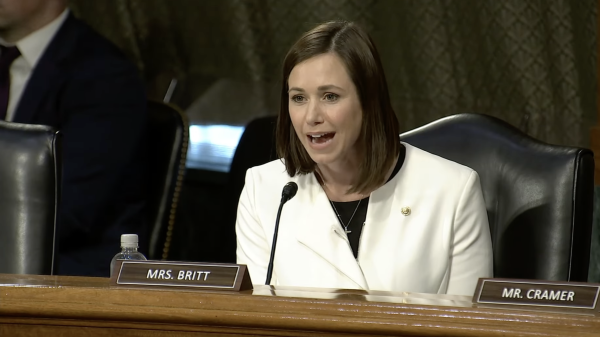The legislature assigned the Medical Cannabis Study Commission with the task of making a recommendation to the Alabama legislature on what a medical marijuana bill would look like in the state of Alabama. The Commission met on Thursday and for the first time began working on a first draft of that legislation.
State Senator Tim Melson (R-Florence) Chairs the Commission and likely will be the Senate sponsor of the bill when it is introduced in the 2020 legislative session.
“We do not have smoking in this bill and the raw plant will not be allowed,” Melson said.
Dr. Steven Stokes is the vice chair of the commission.
Stokes said that the bill will not allow the public to purchase the actual marijuana plant or plant material; but would be in a liquid form.
The Commission also discussed a bill format and marijuana edible products.
Dr. Stokes said, “I am very concerned about a child getting into something like (marijuana laced) gummies and overdosing.”
Dr. Alan Shackelford is a very pro marijuana doctor who was presenting the case for medical marijuana.
“Yes, there has been a problem in Colorado,” Shackelford admitted. “Now it is illegal in Colorado to have a product like gummies. I want it more medical myself.”
Shackelford said that he also warns his patients to stay away from the marijuana brownies; but added “There needs to be an ingestible product.”
The bill will list a number of conditions that marijuana can be used to treat. It will also create a permanent Commission to regulate the medical marijuana industry in Alabama.
The Director of the Alabama District Attorney’s Association Barry Matson expressed his concerns about marijuana advertising in states like Oklahoma and Florida.
Melson agreed, “Advertising would not be appropriate.”
The bill was described as “Very pro-employer.” Persons with a medical marijuana card would not be entitled to workmen’s comp if they were hurt in an accident on the job.
There will be legal protection for “licensed facilities if they are acting in compliance with the rules in this act.”
The Commission members have no specific requirements for expertise; but they must have been continuous residents of Alabama for the last five years. The commission will appoint a director.
The bill would defines what a registered qualified patient is. This version of the bill bans doctors from owning dispensaries as a conflict of interests.
The commission discussed reciprocity at length and appeared to be learning towards not honoring the medical cannabis cards of other states.
Dr. Shackelford said, “Smoking (marijuana) is becoming passe, It is going to liquids, edibles, and dabs.”
Matson warned that there could be “unintended consequences” from this legislation.
State Health Officer Dr. Scott Haarriss said, “I don’t know why it would be with the Department of Agriculture. They have only one investigator. They still have not finished the rules for hemp.”
Dr. Harris suggested that marijuana should be regulated instead by the state ABC Board which regulates alcohol in the state because they have investigators.
“We need to look at other states cards being accepted in Alabama,” Sen. Melson said. “I want people that need it to be able to get it to get it and those that don’t not.”
Dr Shackelford said that in Colorado the covered conditions for medical marijuana are: cancer, HIV/Aids, glaucoma, cachexia, severe pain, severe nausea, seizures, persistent muscle spasms, PTSD was added in June 2017 and autism was added in April 2019.
In the bill, to recommend marijuana a physician must complete a two hour course and be registered by the commission. They must be physically in the same room with the patient to certify them as needing the marijuana. The consent form has to be filled out. It is similar to Florida’s.
There was discussion about who can see the medical marijuana registry. It would include law enforcement and certified nurse midwifes.
Matson objected to sleep disorders and migraines being included in the bill ashere covered conditions.
“This is just a draft,” Melson said. “If you have a concern about a condition being on there or not we can discuss that.”
Licensees under the bill would include: cultivator, processor. dispensary, secure transporter, testing laboratory there will only be one, and an integrated facility that does the growing the processing and the dispensing.
Licensees have to consent to law enforcement searches at any time. Counties and cities can ban this in their jurisdictions.
There was discussion about banning it some distance from a school and if that should include daycares.
There will be provisions in the bill requiring security at these facilities and that all weight of product is tracked so that all of it is accounted for that is grown, harvested, processed, and sold.
If the bill passes the Commission would start accepting applications on September 1.
The Commission is expected to be finished with a bill by December 1.
State Representative Mike Ball told the Alabama Political Reporter, “It’s time, we need this.”
Melson said that the bill “will live or die” in the legislature.





















































